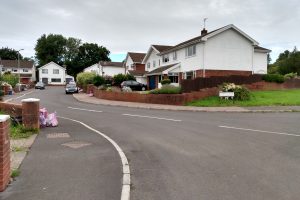OPPOSITION councillors have started a petition against changes to the council’s constitution and have asked for them to be revisited.
Last week, Caerphilly County Borough Council approved proposals to change its constitution at its annual general meeting (AGM). The constitution sets out how the local authority operates and makes decisions.
The amount of scrutiny committees are to be reduced from five to three, which means the amount of scrutiny positions will drop from 80 to 54.
The new committees will be called: education and social services scrutiny, housing and environment scrutiny, and corporate and regeneration scrutiny – 18 members will sit on each of these.
Other changes include a restriction on the amount of questions asked by councillors at meetings, only one notice of motion can be discussed per meeting, and only supported motions can be passed to full council or cabinet.
At the meeting on Thursday May 11, councillors from both Plaid Cymru and the Independents walked out of the chamber in protest.
The opposition has branded the changes “anti-democratic”, but council leader Sean Morgan has defended them.
Cllr Morgan, who represents Nelson, said: “I believe these changes will lead to a more open, transparent and robust examination of the council’s functions.”

Question to leader refused
Plaid Cymru’s group leader, councillor Lindsay Whittle, said the decision was rushed through with “undue haste”. Following this, he submitted an emergency question to be asked at full council on Tuesday May 23.
Cllr Whittle, who represents Penyrheol, wanted to ask if the council would revisit the issue and renegotiate the changes to scrutiny.
The emergency question was rejected by Labour councillor Mike Adams, who as mayor chairs the full council meetings. He said the matter was not “urgent”.

Cllr Adams said the changes had been subject to “thorough debate” at the council’s AGM and members have until September to discuss the changes with the leader.
In response to this, Cllr Whittle said: “I’m not surprised at the ruling given the drive by the Labour leadership to stifle debate and more broadly local democracy. The Labour mayor was clearly told to refuse the emergency question.
“But Plaid Cymru will continue its opposition to this huge backward step that will restrict the scrutiny of the ruling Labour group and its policies. It is anti-democratic.”
“People’s Petition”
Leader of the Independent group, Cllr Kevin Etheridge and Blackwood’s town Mayor George Edwards have started a “people’s petition” against the changes.
The petition aims to “bring back democracy” and asks the council to abandon the changes. It currently has 100 signatures and can be found here.

Cllr Etheridge, who represents Blackwood, said: “I urge the leadership within Caerphilly to reconsider introducing these proposals and listen to the people in regard to their motto of ‘we are all team Caerphilly’.
“These matters will not go away. No opposition councillor wants to boycott scrutiny in September but elected members and residents must be engaged and consulted.
“I again call for an all-party working group on these important matters as we want compromise and not confrontation.”
Council leader’s response
Cllr Morgan said: “The refinements to the council’s constitution are intended to ensure that the democratic process becomes more efficient, inclusive and productive.
“With increased membership on scrutiny committees, and by using the ‘all member scrutiny’ which we have successfully trialled over the past couple of years, this will provide increased member input on the broader issues and overarching policies that govern the running of the council.
“I believe these changes will lead to a more open, transparent and robust examination of the councils functions.”



















